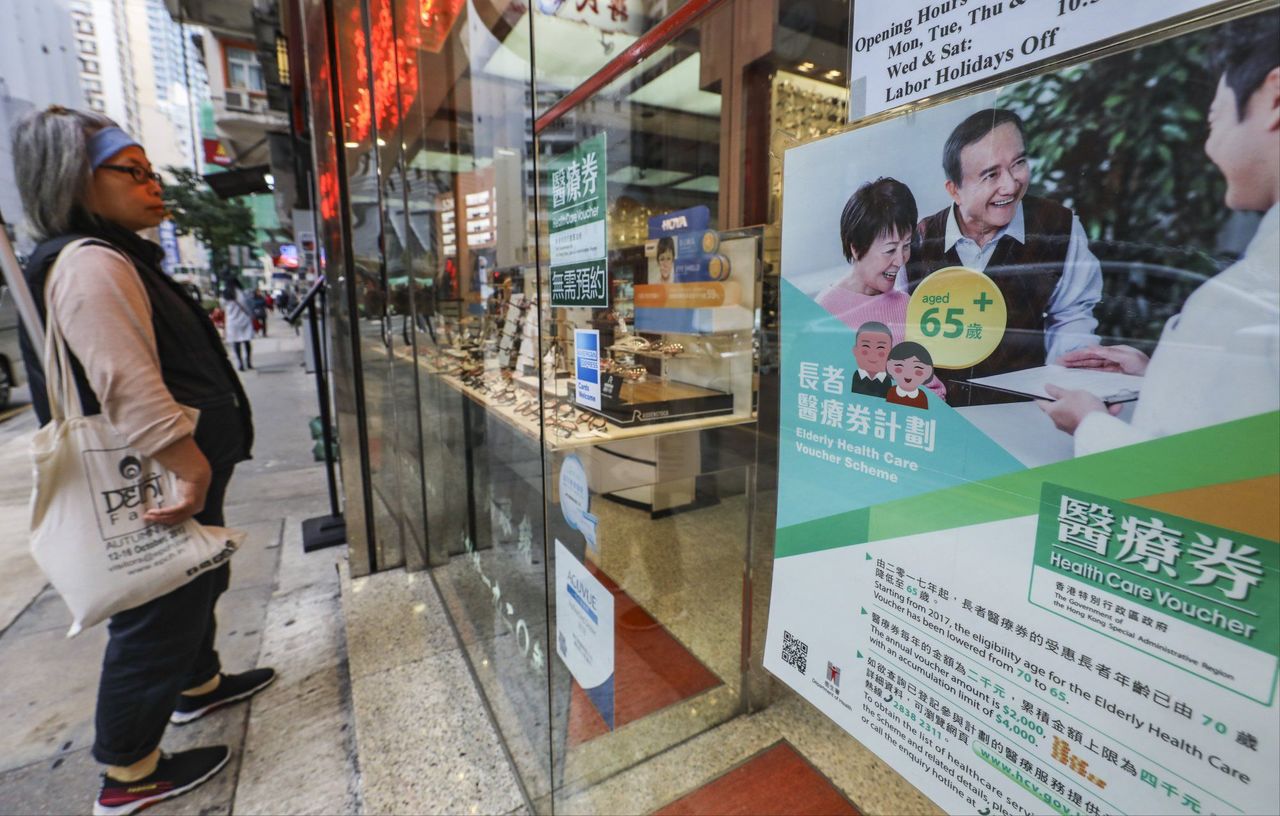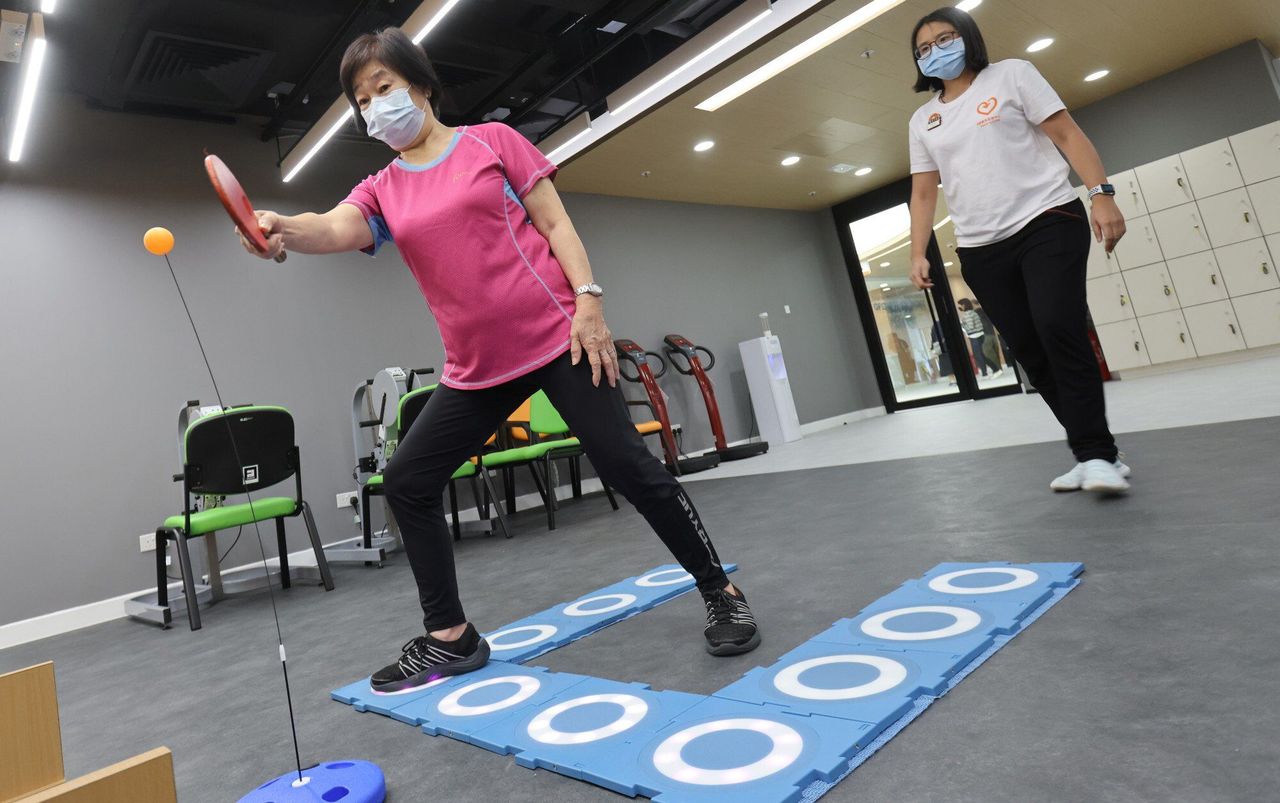Hong Kong News

To improve Hong Kong’s primary health care, get residents involved
The Kwai Chung Estate lockdown has been in the media spotlight, not only because of the large number of Covid-19 cases related to a cluster at the estate, but also because of residents’ complaints about lockdown and testing conditions: poor waste disposal, the lack of crowd control at testing stations and so on.
As the authorities rush to address these grievances, we must remember that Band-Aid solutions are not enough. Instead, the policymaking process should be improved to involve thorough consideration for citizens’ needs every step of the way, well before the policy is implemented.
Take the health care voucher scheme for the elderly, for example. This is a public-private partnership programme to incentivise the elderly population to use primary care services in the private sector. It has been long reported that usage of the voucher is misaligned with the programme’s good intentions.
Government figures show that in 2019, 68 per cent of seniors used the voucher for acute episodic conditions, in contrast with 42 per cent for preventive care; and the figure for preventive care was a modest improvement on 36 per cent in 2017.
 A poster on the health care voucher scheme is displayed at an eyewear shop in Wan Chai in March 2019.
A poster on the health care voucher scheme is displayed at an eyewear shop in Wan Chai in March 2019.
As a 2019 government report noted, televised announcements and posters on proper usage of the voucher have not translated into a significantly improved understanding among the target demographic of the primary care services that can be assessed through the scheme.
In November, the Secretary for Food and Health said ideas were being explored to ensure informed use of the vouchers. These could include having staff at District Health Centres create personalised plans for voucher holders.
The bureau is also considering restricting voucher usage to certain services, such as disease screening, which has provoked a mixed response from the public, including concern over the voucher’s inflexibility. As the bureau continues to enhance the effectiveness of the scheme, citizens’ views must be taken into account.
These efforts to address the voucher’s drawbacks come as Our Hong Kong Foundation, in its latest health policy research report, calls for the government to adopt strategic purchasing as a governance tool for health service planning.
Specifically, the report proposes implementing a chronic disease screening voucher and management scheme for hypertension, diabetes and hyperlipidemia in the private sector. People aged between 45 and 54 will be the targeted beneficiaries as this group is currently underserved by subsidised screening programmes.
Crucially, the report emphasises citizen empowerment. Hongkongers should be involved in designing health services and policies.
The proposed chronic disease screening voucher is an example of a programme designed with users’ preventive care needs and wants in mind. A population-wide survey conducted by the researchers found that the public was willing to pay between HK$51 and HK$200 per consultation in the private sector to manage chronic conditions.
This range is positively associated with monthly household income, suggesting the need for income-sensitive pricing and the involvement of citizens in setting up a co-payment schedule. Financial concerns, busy schedules and lack of urgency were the top reasons people cited for not undergoing health screening; these are barriers to screening access that must be addressed.
 A member of Sham Shui Po District Health Centre demonstrates how to use
interactive Moto Tiles for exercise during a media tour in 2021.
A member of Sham Shui Po District Health Centre demonstrates how to use
interactive Moto Tiles for exercise during a media tour in 2021.
The fragmentation of health services in Hong Kong suggests the need to empower residents to navigate the health system. Providers, users and District Health Centre operators involved in the foundation’s study expressed concern over the lack of clarity on coverage for conditions, particularly comorbid diseases. Previously, stakeholders also pointed to the need for better differentiation between services provided by the District Health Centres and through the Hospital Authority’s various public-private partnership schemes, so as to prevent unintended service duplication.
The government is expected to present a primary health care blueprint for a public consultation within the year, and some in the community have recently provided input into how to enhance the accessibility of health services.
For instance, a patient group suggested incorporating patient support groups into the formal primary health care network, providing these groups with timely updates on developments in primary health care and viewing the groups as partners in health service planning.
At a practical level, the government should consider engaging with residents through District Health Centres, gathering their feedback, and conveying it to health planners responsible for service provision.
The government should also communicate information about service packages in a transparent and timely manner with older, low-income and vulnerable groups, by leveraging the trust built between community-based NGOs and these populations, who tend to be under-engaged in the roll-out of new initiatives.
A motion on a 10-year plan for primary health care was recently passed by the Legislative Council, and during the debate, the idea of having an authority oversee primary health care development in the city was once again mentioned.
It is critical that this authority will ensure and initiate citizen participation. The holistic needs of the ultimate beneficiaries of well-intended schemes must be considered – before and throughout every health programme – so that public money can be more efficiently spent to deliver better health care for all.











